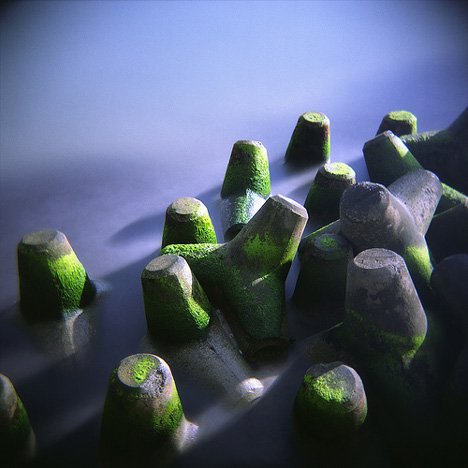Category Archives: photography
Advent Calendar 4
Advent Calendar 3
Why? …
Advent Calendar 2
Advent Calendar : 1
[48/52] Autumn Oak
Reasons to be Grateful 2
OK so here’s week two of my experiment: this week’s things which have made me happy or for which I’m grateful:
- Autumn Colours^ — there are still some gorgeous golden leaves around as well as bright red fruit on our ornamental crab apple, especially in …
- Sunshine* — which makes those autumn colours all the more vibrant
- Vagina Cupcakes — they’re a hoot!
- Beaujolais Nouveau* — I’ve now tasted three different ones and they’re all excellent
- Sleep — it’s so restorative to sleep well and undisturbed as I did last night
* No-one said I couldn’t choose the same things as last week!
Green Autumn
 It’s a warm and green autumn in the UK this year. It is mid-November; the daytime temperature is stills several degrees above average; I’m not aware that we’ve had any frost yet; and the fish in the pond are still feeding (in a normal year they stop feeding for the winter in mid-October).
It’s a warm and green autumn in the UK this year. It is mid-November; the daytime temperature is stills several degrees above average; I’m not aware that we’ve had any frost yet; and the fish in the pond are still feeding (in a normal year they stop feeding for the winter in mid-October).
What’s interesting is that it has highlighted something I’ve known about for some time but which we don’t usually see in action so clearly. That’s the way in which (deciduous) trees lose their leaves.
As I understand it (and I can find nothing to substantiate this) there are two triggers to autumn leave loss: day length and temperature. Some trees start losing leaves when the hours of daylight fall below some critical point. For other trees the trigger is consistently low temperatures.
No I have no idea exactly what the trigger points are in detail, and I would expect them to vary between species. Some trees may also of course have a combined trigger where day length and temperature both have to fall; and again I would expect this to vary greatly by species.
But it is noticeable this year that some trees have lost their leaves according to much their normal schedule (presumably due to changes in day length triggering the process) and others are still green (where presumably the trigger is a drop in temperature).
Coming back from the supermarket this morning I did a quick, fairly unscientific, check and found:
| Trees that have (mostly) lost their leaves |
Trees which are (largely) still green |
| Ash Poplar Hawthorn Horse Chestnut* Beech Cherry Silver Birch London Plane |
Alder Oak |
Can anyone confirm that I am right about the triggers and that the trees I see are acting the way they should?
And can someone please arrange some proper cold weather. I don’t like these warm winters — if only because they tend to be grey and murky. I’d rather have cold and alpine. And besides, as the old saw goes:
A green Christmas means a fat churchyard.
* Horse Chestnut may be a red herring as most of the trees around here are infected with the leaf-mining moth Cameraria ohridella which is affecting these trees progressively across most of the country. This causes early leaf death.
Listography : Gadgets
Gotta get a gadget? OK. That’s easy ‘cos Kate’s Listography this week is all about gadgets. Our top five gadgets ever. So here goes …
Washing Machine. Now there are two types of washing machine: the clothes washer and the dish washer. Both fulfil essentially the same function on different commodities. So I’m going to cheat and choose both!
PC. Well I couldn’t do above 10% of what I currently do without one. How did anyone run a society, let alone a business, using only a pen, a typewriter and a Roneo machine?
Digital Camera. I like looking at things and trying to make pictures. But I cannot draw for toffee and anyway it takes too long. So I’m glad I learnt photography when young. And then someone invented the digital camera so I don’t have to do all that tedious darkroom work.
Spectacles. I’ve worn specs since I was about 14. That’s nearly 50 years (eeek!). They’re a part of me and I mostly don’t even know I’m wearing them — only true specs wearers will understand the surrealism of trying to wipe your eye only to find you’re still wearing your glasses. And I’d be as blind as a at without them.

Biro and Automatic Clutch Pencil. Again I’m going to lump these two together as essential writing implements. I hated the old “dip in the ink-pot pens” as I always ended up with ink everywhere. Fountain pens weren’t a lot better. I can’t abide blunt pencils but could never sharpen a pencil properly, even with a pencil sharpener and certainly not with a penknife. Good biros and good clutch pencils (I use the Sanford/Papermate PhD range which are so comfortable), while they may not have done a lot for handwriting, have made life so much more amenable. Three cheers for László Bíró and the inventors of the automatic pencil (Tokuji Hayakawa and Charles R Keeran).
So there you have it: seven gadgets for the price of five!
Oh! But wait! I’ve forgotten the most important gadget of all … a wife. 🙂



![[48/52] Autumn Oak](https://farm8.staticflickr.com/7032/6411557571_1dc92d30f6.jpg)